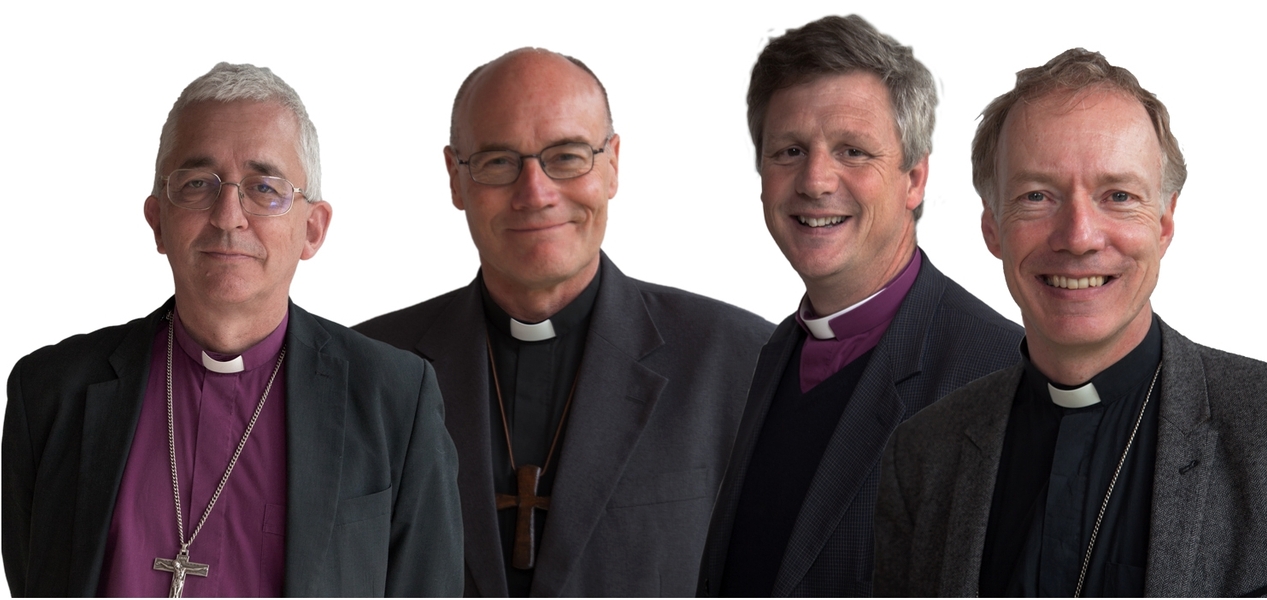
The bishops of Lichfield Diocese have written a joint letter to be read to parishes in the wake of last week's referendum vote on Brexit.
Acknowledging the uncertainty and confusion that lies in its wake, they talk of parishioners' duty as both Christians and citizens to play their part in building bridges across communities. In particular, they echo the Archbishops' call to "build a generous and forward looking country".
They highlight three specific groups that churches should look out for: those feeling vulnerable as a result of the vote (such as those of other nationality or race); young people who will live longer with the result of the referendum; and opportunities to celebrate links with churches abroad, and in particular the Diocese's link with Nordkirche in Germany,
The full text reads:
The outcome of the EU referendum has brought in its wake much uncertainty and confusion, within the economic, social and political spheres. For many in our nation, these are now anxious times and we all have a duty, as Christians and as citizens, to play our part in rising to the challenges the present moment brings.
Our Archbishops of Canterbury and York issued a statement on the day after the referendum in which they called upon each one of us to now unite in a common task to build a generous and forward looking country exhorting us to remain hospitable and compassionate, builders of bridges and not barriers .
We strongly endorse this plea and would ask every member of our churches to be mindful of three particular ways in which we can, individually and as church families, strengthen our relationships and honour one another.
1.To actively look out for those who will be feeling particularly vulnerable at this time e.g. EU citizens living among us and members of ethnic minorities, and find practical ways to show them kindness and support.
2. To be particularly aware of and sensitive to the perspectives and feelings of young people, for whom this decision will have far reaching consequences. Churches are one of the few places outside the home where inter-generational dialogue can take place in a supportive environment.
3. To look for ways of celebrating the friendship and companion links that join us with churches and communities in Europe (e.g. at Diocesan level with Nordkirche) and committing in the coming year to put additional energy into these.
The Archbishops statement was also a call to prayer, and we join with them in encouraging all who hope and trust in the living God to pray for our leaders, both present and future, and for leaders across Europe and throughout the world, during this time of dramatic change.
Let us pray too for our nation, that we may join together, in our rich diversity, and build a country that we can all be proud of. And which the rest of Europe will see as a partner and as a friend.
+Michael Ipgrave (Bishop of Lichfield)
+Clive Gregory (Bishop of Wolverhampton)
+Mark Rylands (Bishop of Shrewsbury)
+Geoff Annas (Bishop of Stafford)
+Jonathan Goodall (Bishop of Ebbsfleet, Assistant Bishop in the Diocese of Lichfield)
The bishops themselves have discussed and shared differing views through the campaign: +Clive described his Remain view before the vote, while +Mark has written about his reasons to vote Leave in this week's Church Times.